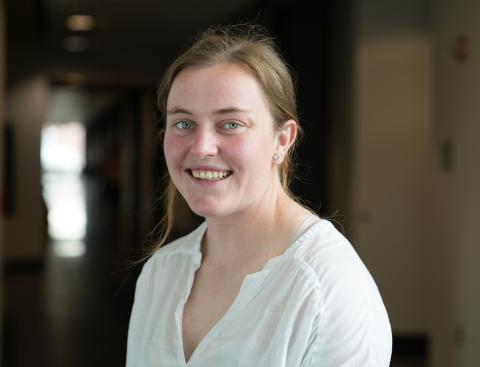
Cheristy Jones is a Ph.D. student studying natural resources and earth systems science. Her hometown is in Draper, Utah, and she received her BA in environmental science from Colorado College.
1. Why did you choose UNH for your graduate program?
I chose UNH for a variety of reasons. First off, I was excited to work with my mentor, Dr. Ruth Varner, who does research and teaches undergraduates and graduate students in Arctic Sweden. I was also particularly drawn to the natural resources and earth systems science program for its interdisciplinary nature. I can take courses that not only focus on the natural sciences, but also on environmental policy and ethics which allows me to connect science to societally relevant topics. I am also a fellow in the Convergent Arctic Research Perspectives and Education graduate trainee program where we conduct convergent (i.e., societally relevant, and multi-disciplinary) research and learn how to co-produce knowledge with local and Indigenous communities.
2. What is your Research Focus?
I study greenhouse gas emissions in the Arctic. Specifically, I study how carbon dioxide and methane are transported in groundwater across the landscape and how that affects atmospheric emissions from streams and lakes. We know that surrounding landscapes can have a big influence on streams and lakes, but we don’t know how much is being transported or how that’s going to change as the climate warms.
3. What are you hoping to accomplish with this research? How will it potentially impact society or day-to-day life?
I am trying to bridge the gap between land-based and freshwater-based biogeochemistry to understand what drives greenhouse gas emissions and how these emissions may change as temperatures rise in the future. Arctic communities are at the forefront of experiencing these changes, but ultimately the entire globe is connected and what happens in the Arctic doesn’t stay in the Arctic.
4. What do you enjoy most about your experience at UNH?
I really enjoy the community at UNH. Whether it’s collaborating with other professors or having coffee with my peers, UNH has a tight knit community and values training students to do high caliber research.
5. What do you hope to do after your time at UNH?
Ultimately, I hope to become a professor at a teaching focused university. I have had the opportunity to work with many undergraduates during my time at UNH which has instilled in me the desire to continue mentoring the next generations of scientists. I hope to continue asking and answering scientific questions with societal impacts.
6. What is your advice for someone on how to best prepare for a graduate program?
I would say try to have a variety of different experiences before you start graduate school. Work in different labs, in different fields, and with different people. Even getting work experience before going to school can give you a unique skillset that you can bring to your graduate program. You can also see how different labs operate and decide what you’re interested in and what work style is best for you.